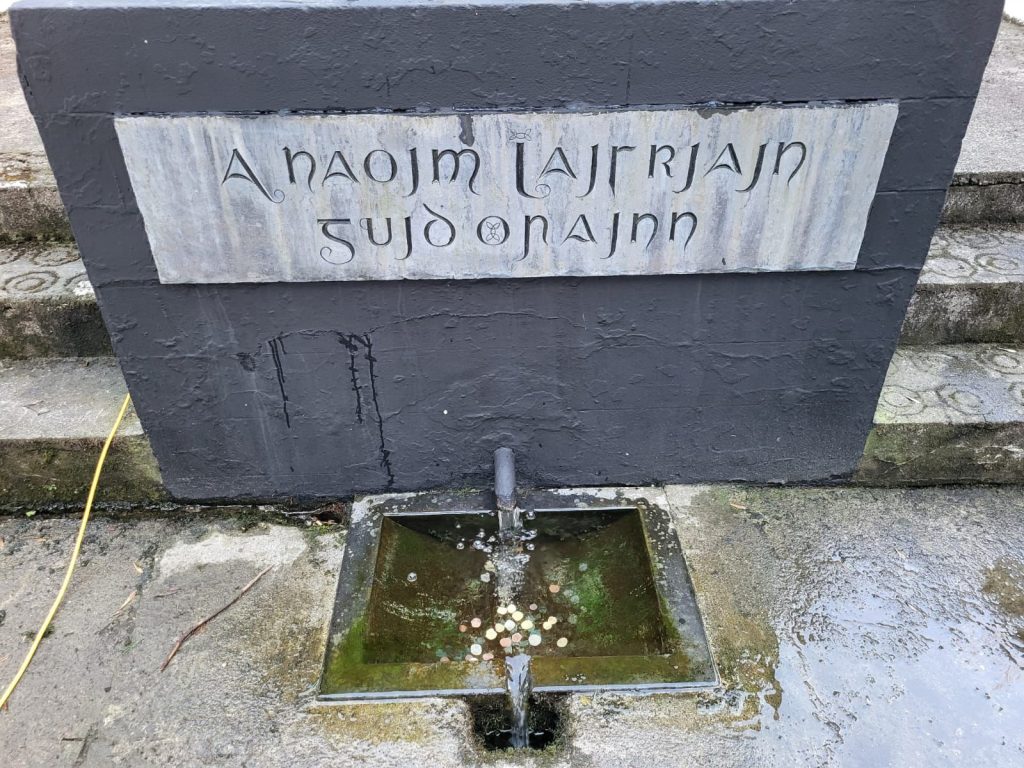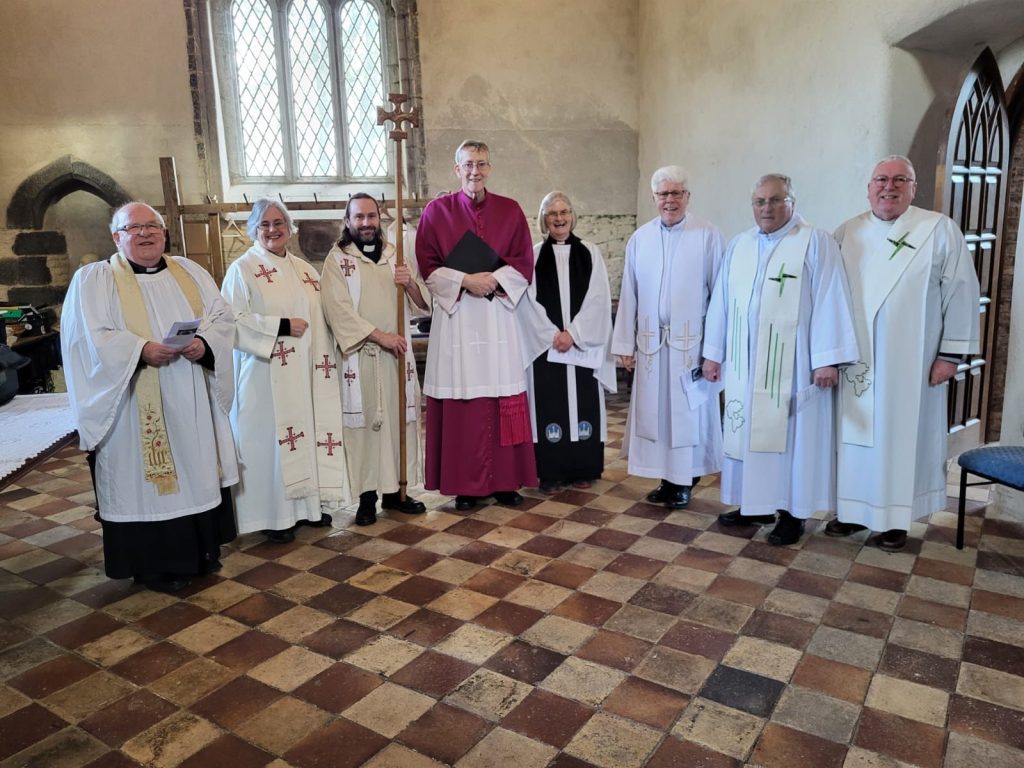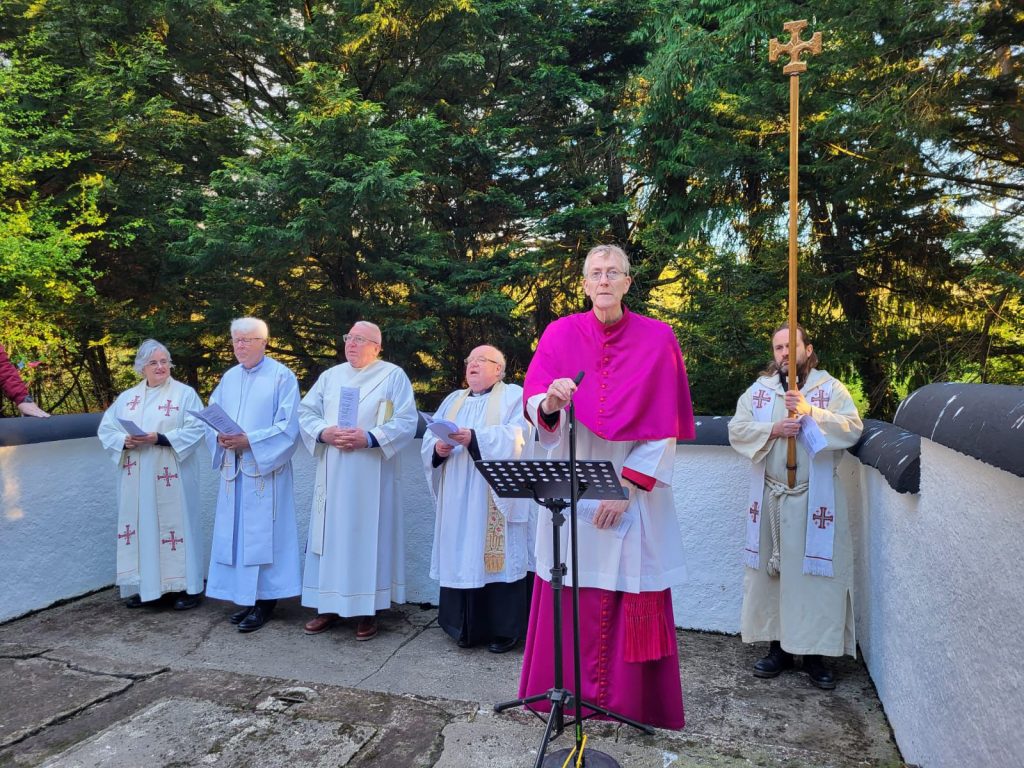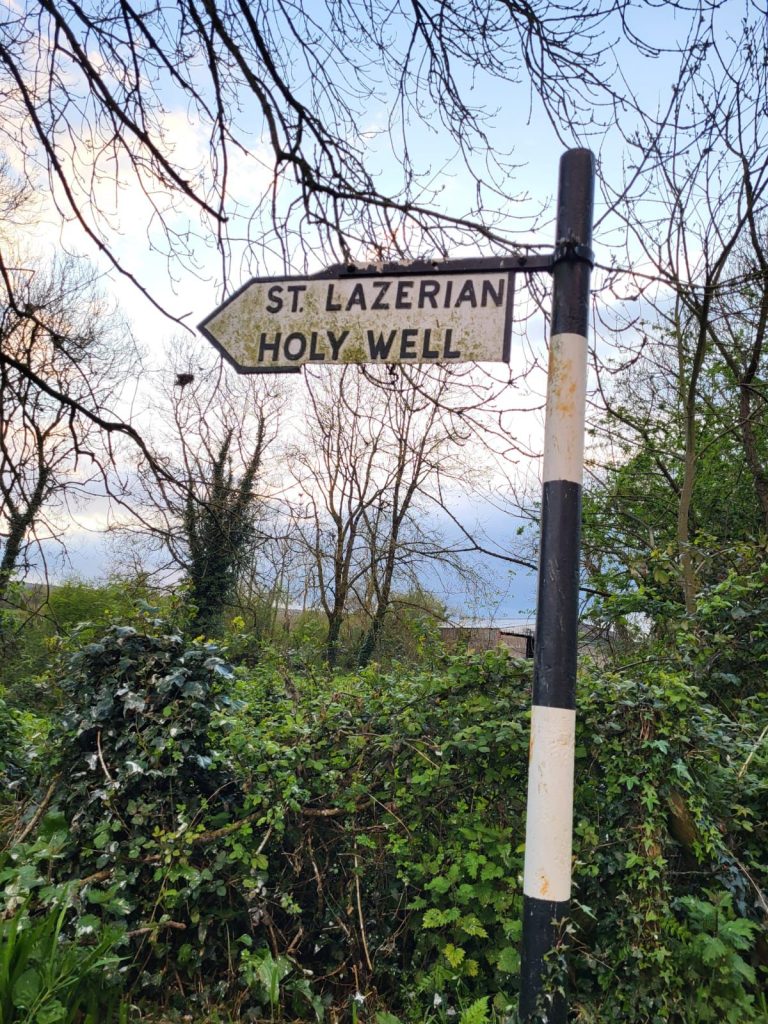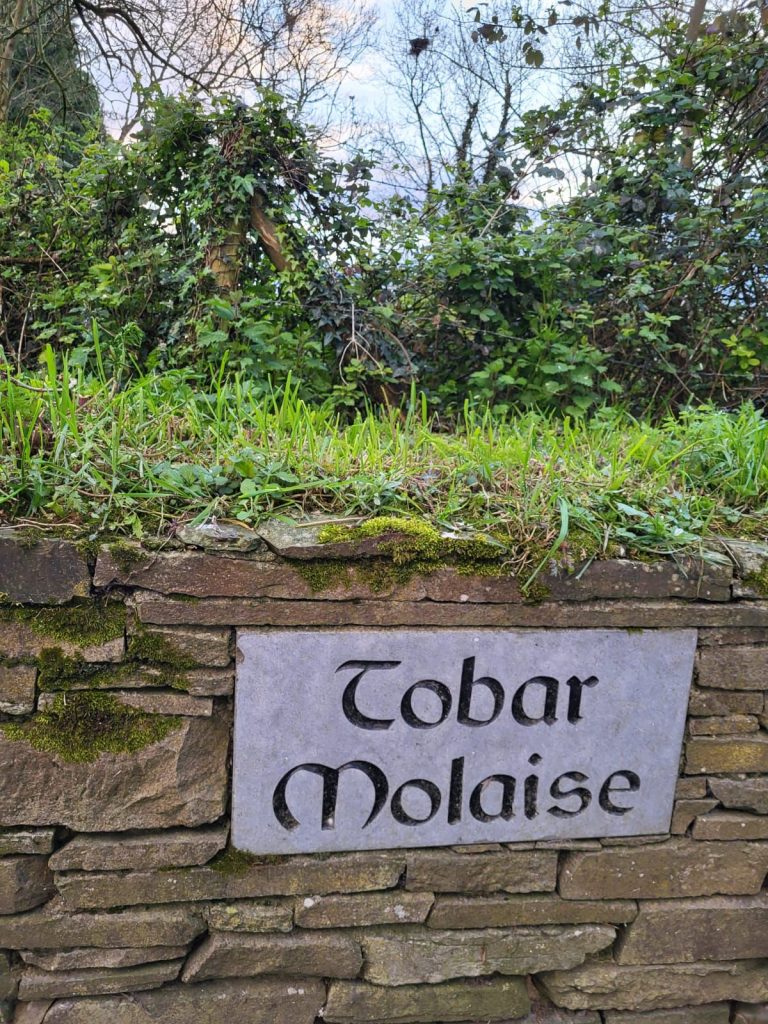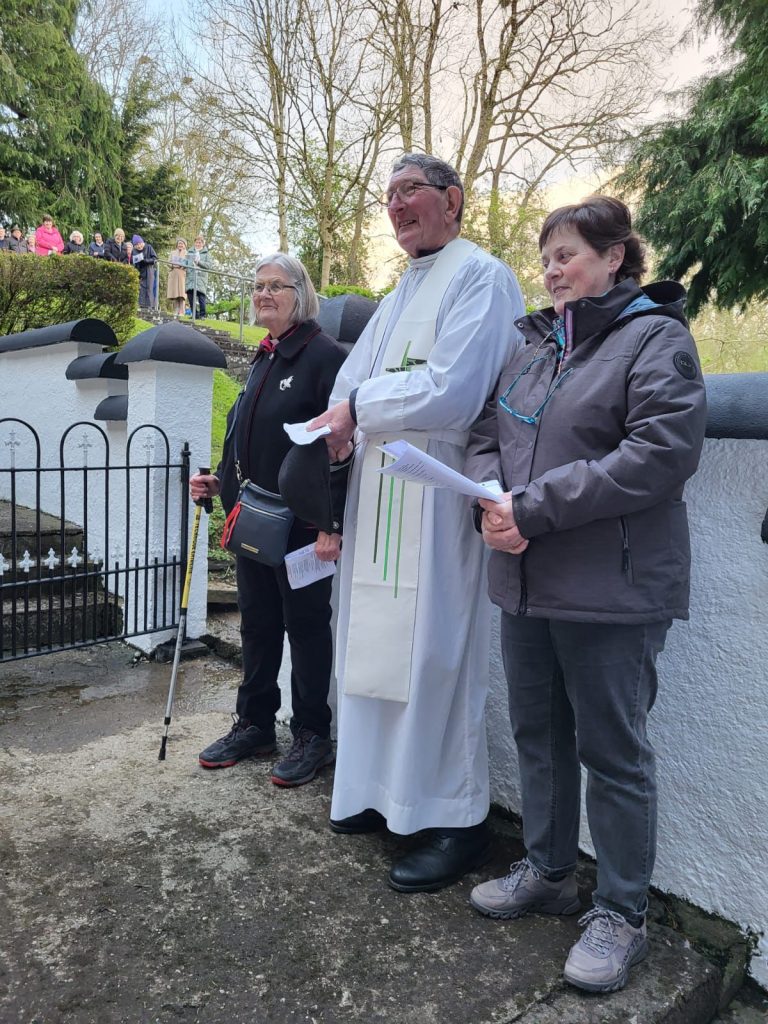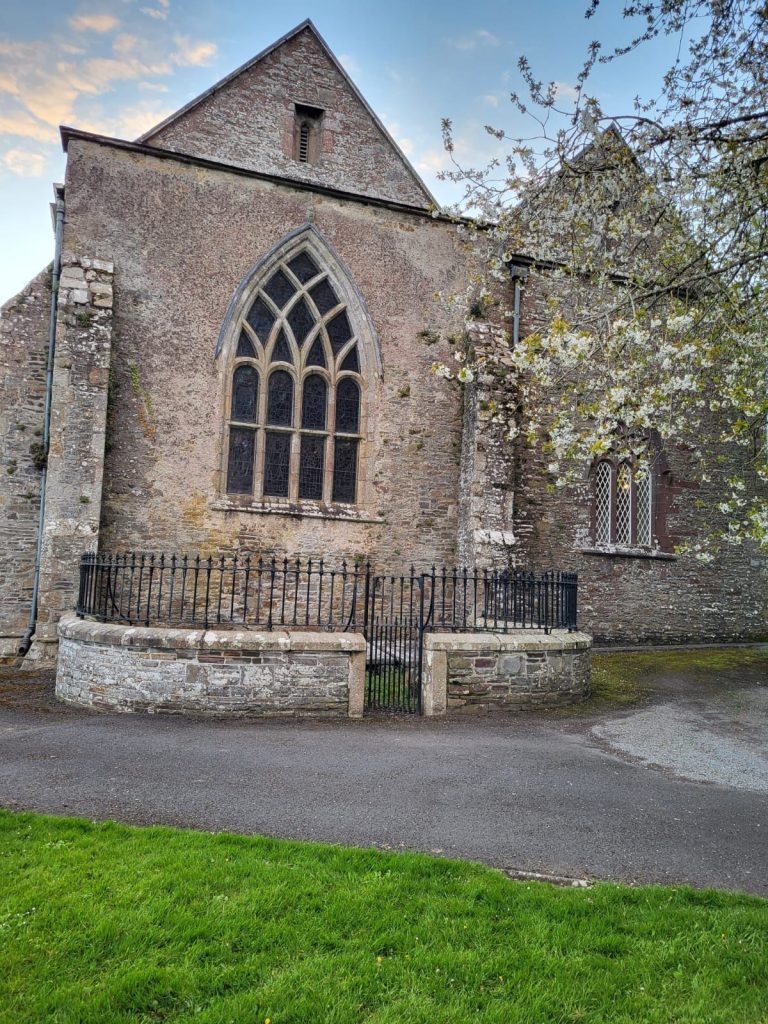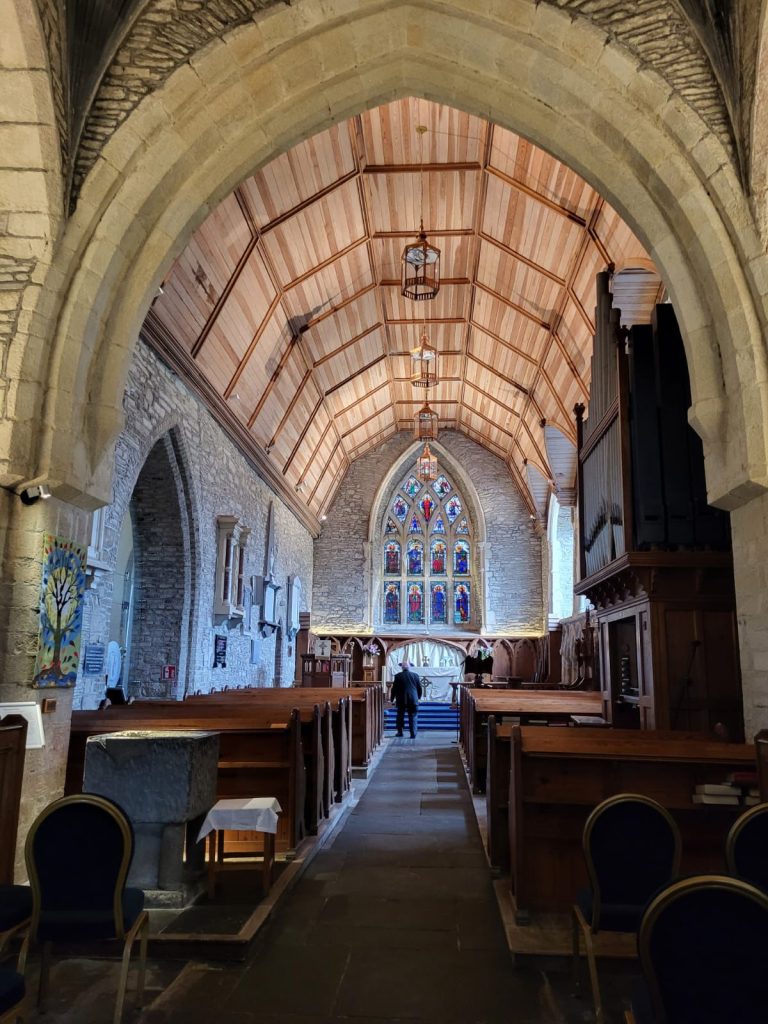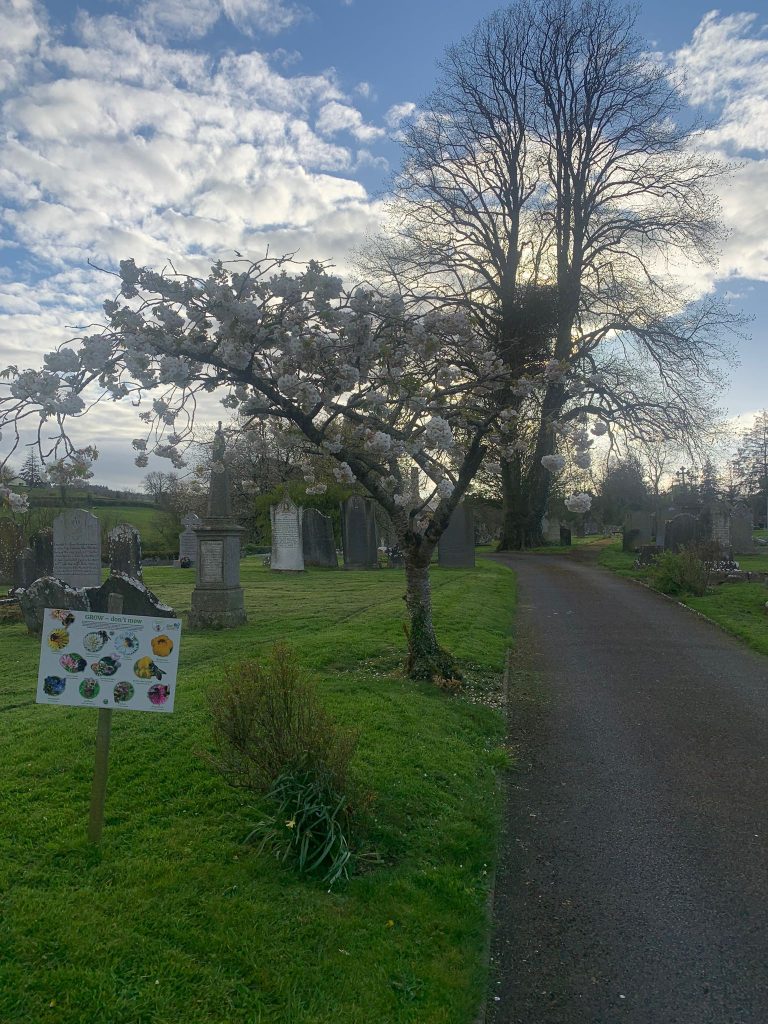Patronal Festival of St. Laserian – Molaise Day: 18.04.24
Old Leighlin Cathedral @ 7pm
“All in the April evening,
April airs were abroad;
The sheep with their little lambs
Passed me by on the road”
Alice Tynan’s splendid poem uses the imagery of sheep and lambs to draw parallels between the natural world and the Christian narrative. The innocent and vulnerable lambs represent Christ, who is depicted as a sacrificial lamb who willingly goes to die. Matthews gospel of judgement day creates the counterbalance for us all, are we on the side of the sheep or the goats?
“The sheep with their little lambs
Passed me by on the road;
All in the April evening
I thought on the Lamb of God”
Here in this beautiful ecclesiastical village of Old Leighlin the image of sheep and goats is an image we are very much at home with. To think that this Cathedral and its environs in its heyday was home to fifteen hundred monks. Monks who lived off the land. Every sod of ground around St. Laserian’s Cathedral is holy ground. Here the monks lived, here St. Laserian, their abbot prayed.
“The lambs were weary and crying
With a weak, human cry.
I thought on the Lamb of God
Going meekly to die”
There was a photograph that caught my eye in one of the daily broadsheets last Tuesday[1]. It was of a shepherd by the name of Melissa Jeuken minding the only documented herd of the old Irish Goat, which are currently part of a breeding and conservation programme on Howth Head. Apparently Irelands only native breed is critically endangered, as they are hunted for sport by people who splash out thousands of euro on so called ‘bloodsport tours’.
Goats get a bad press. Matthew places them on the left. As a farmer’s son I recall their association with the spread of tuberculosis, TB that could run riot through a whole herd. No sadder image than the cattle lorries arriving on an early morning to take the herd away. We blame it on the goat, the badger, the fly, whatever is beyond our control.
“Up in the blue, blue mountains
Dewy pastures are sweet;
Rest for the little bodies,
Rest for the little feet”
In Alice Tynan’s poem the contrast is between the peaceful April evening and the stark Cross of Calvary highlighting the suffering and sacrifice of Christ. The poem’s concise, yet evocative language effectively conveys the themes of sacrifice, redemption, and the parallel between the natural and spiritual realms.
What was Laserian the Abbot of this monastic settlement up to in the seventh century? There wasn’t much time to rest his feet, like those little lambs. He is associated with the introduction of Roman timing on these islands for determining the date Easter fell. I sometimes wonder was that as much about power or political clout as it was about gospel values. The values he espoused were very much establshing the Kingdom on this earth.
“But for the Lamb of God,
Up on the hill-top green,
Only a Cross of shame
Two stark crosses between”
Respect for the hungry, the thirsty, the stranger; the one who is naked; the sick and those in prison. St. Teresa of Calcutta said that there were five words that could summarise the entire Gospel “you did it to me”[2]. If we lived these words, our world would be a much better place.
Jesus is offering us a kind of leadership with a very different and distinct approach to change. Jesus doesn’t offer change; he demands it! And he shows us how to make that change effective … back to those five words which echo strongly from our gospel: “you did it to me”[3]. The corollary also holds through, when you neglect to take up the challenge – “you neglected to do it to me”[4].
“All in the April evening,
April airs were abroad;
I saw the sheep with their lambs,
And thought on the Lamb of God”.
I am reminded me of the story of a good and kindly king who was concerned about his advancing years and his ability to continue governing and serving his people. He decided to seek an assistant, a man after his own heart whose only ambition would be to serve and seek the good of all, especially the weak and vulnerable. He issued a decree to all the areas of his kingdom looking for nominees. They were to come to the royal palace on a specified date but before twelve noon, as the palace gates would be closed then.
Nobelmen and aristocrats all prepared their cv’s and made their way to the palace. In one remote village there was a blacksmith, much loved by the people for his good and kindly disposition. The villagers pleaded with him to apply, he resisted, they persisted, eventually he gave in and made his way to the palace. As he approached the gates, he heard a poor man call out in distress, he dismounted his horse and attended to the man, promising further assistance later. Just then, the clock struck noon and the gates closed. He was too late, he returned to the village, dispondent because he felt he let down the villagers.
The following day the king announced he had chosen his royal assistant. Of all those who came to seek the position, only one heeded the poor man’s cry, this humble blacksmith. For he the king had disguised himself as the beggar at the palace gates.
Matthews words come back “You did it to me”[5]. And perhaps that might be our take home message on this the evening of St. Laserian, St. Molaise, as we walk to the holy well outside, we simply ask are we on the side of the sheep or the goats? Are there moments when we faithfully lived those gospel values and are there moments when we turned the other way, disappointing ourselves and everyone else?
“All in the April evening,
April airs were abroad;
The sheep with their little lambs
Passed me by on the road”
[1] Irish Independent, Tuesday April 16, 2024, pg 1.
[2] Mt.25:40
[3] ibid
[4] Mt.25:45
[5] Mt.25:40
